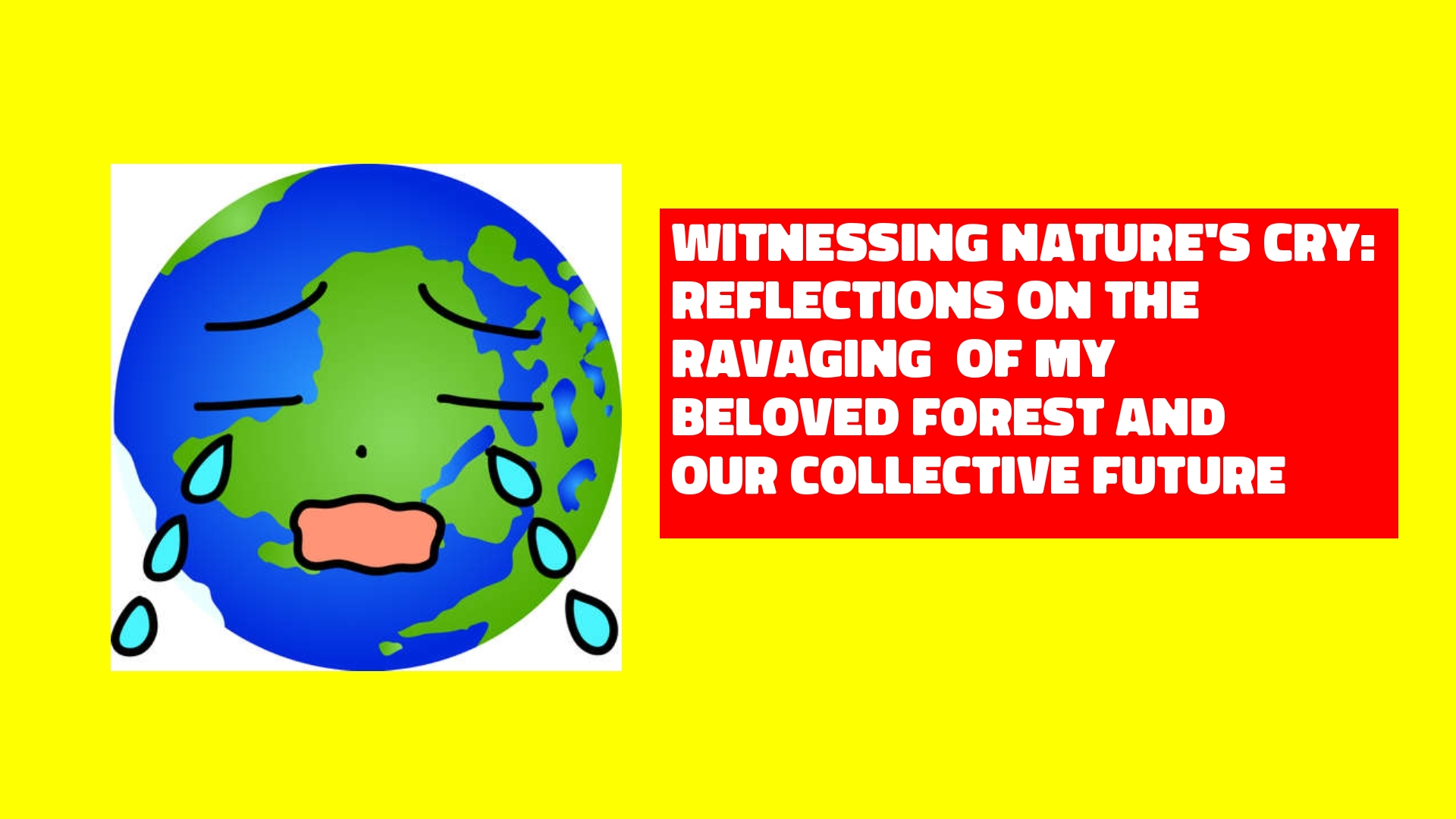I live in Northern Europe and love my local forest. Last summer which was unusually long, dry, and hot I found out that one of my favorite spots in the forest which also had some very rare plants was being quickly destroyed by bark beetles. It was like a war zone! Huge old spruce trees were dying quickly and falling, and the sound of the beetles chewing on the bark was eerie. I cried in shock.
They were always there, but never in such quantities and destroying the forest so quickly! It came to my mind that sooner or later our forest may be completely gone if this continues. I don’t know what I’m going to do if it happens. The forest has been my best friend, a therapist, and also a provider of nutrient-rich food. It will be so stressful to see it die that I may have to move elsewhere.
I believe the bark beetles propagated due to the favorable conditions, like the extremely dry, hot, and long summer. I hope it will not be like this every year, but it looks like science doesn’t support it.
As I recall (and I may be wrong), Peter Wadhams predicted all this in his book Farewell to Ice, except once the heating ball gets rolling, it doesn’t conveniently stop at some convenient number but rises exponentially until—well, until the planet is a tad too hot and unstable for food to be produced anywhere—which isn’t great news. How long have we got? Who knows, but probably not as long as we would like.
This is roughly my projection, but I am reaching a nadir below the 1B population. I’ve presumed a population crash for at least 30 years and started to settle on a nadir of between 100M and 1B in the last 10 years (I used to think it would be worse).
The primary factor is human behavior and the “nurture” side, or our evolutionary process. Like cyanobacteria bringing about snowball Earth, this is a pattern in evolution. Facing the truth about the reality of our behavior and its consequences is the only way to change that behavior, but this means giving up the idea (or delusion) of having all of the goodies we want and overcoming that denial is difficult at best and impossible in most cases.
I think this is a massive call to action, either to become a climate activist or to put pressure on our politicians to protect our common house. If our children ask why, knowing the facts, we did nothing to protect their well-being and safety, we will eventually have to face and tell the truth: “I was busy with important things” or “We knew, but we had to protect our profits.”.
AI can solve technical problems but not social or political problems, as the latter involve compromise between people. AI cannot make people agree or compromise. In these situations, AI becomes just another voice in the discussion, just another opinion.
I think the bigger reason people react badly to this subject is less about the issue itself and more about the proposed solutions, how quickly those supposed solutions are being implemented, and the general way the media portrays the situation.
Solar, for instance, is not very reliable on its own, so there are concerns, but we are having huge pushes for it. Meanwhile, we are trying to increase our reliance on electricity in our homes and vehicles by trying to phase out gasoline cars and gas (natural gas or propane) cooking at the same time, while we already know our electric grid struggles to keep up at times.
Much of the solution, at least at a surface level, just looks like…
Hey, we have some problems.
Increase taxes; problem solved!
Another issue is that many of the solutions are all about more global governance of varying topics, and that sets off many alarm bells for many people.
All in all, there are many disputes about many aspects of the topic, and anyone who doesn’t 100% agree with any of those aspects gets labeled as a “science denier,” no matter what part of the problem or solution is in disagreement, and the discussion becomes more about politics than science or problem-solving.
The most important topic we should all care about is the future of our children. This is a complicated topic. Most people cannot understand or do not want to understand, and they will never voluntarily change their lifestyle. Unfortunately, the world is full of people who are more concerned with TV series, The Bachelor, Ex on the Beach, etc. And leaders who are more concerned with “circus to the people”.
Because the truth is that if CO2 emissions are to be lower, then I, you, and all of us have to reduce our consumption patterns, which will never happen voluntarily. And there are few, if any, politicians who dare to tell the people the truth about what measures need to be implemented, as that is the same as being politically dead. Is there any other way than for the authorities in all industrialized countries to start setting restrictions that affect our consumption patterns, while at the same time forcing all industries and companies to think about the environment before profit?
I’ve been gardening since my youth. I still keep a sizable garden. I’ve been noticing these last couple of years a reduction in productivity. Last year, my tomatoes were all struggling and producing poorly. I also fish. And those populations are crashing. Sturgeon rules changed this year. We used to be able to keep two fish per year with a size between 40 and 60 inches in length. This year it’s 1 fish between 42 and 48 inches.
I’ve always said the curve isn’t linear. Just wait until all the factors fully contribute.

